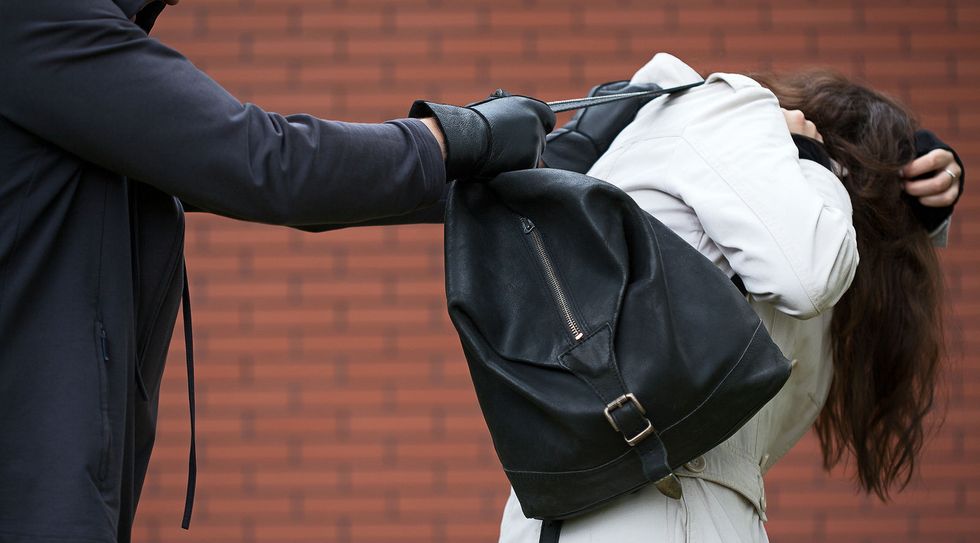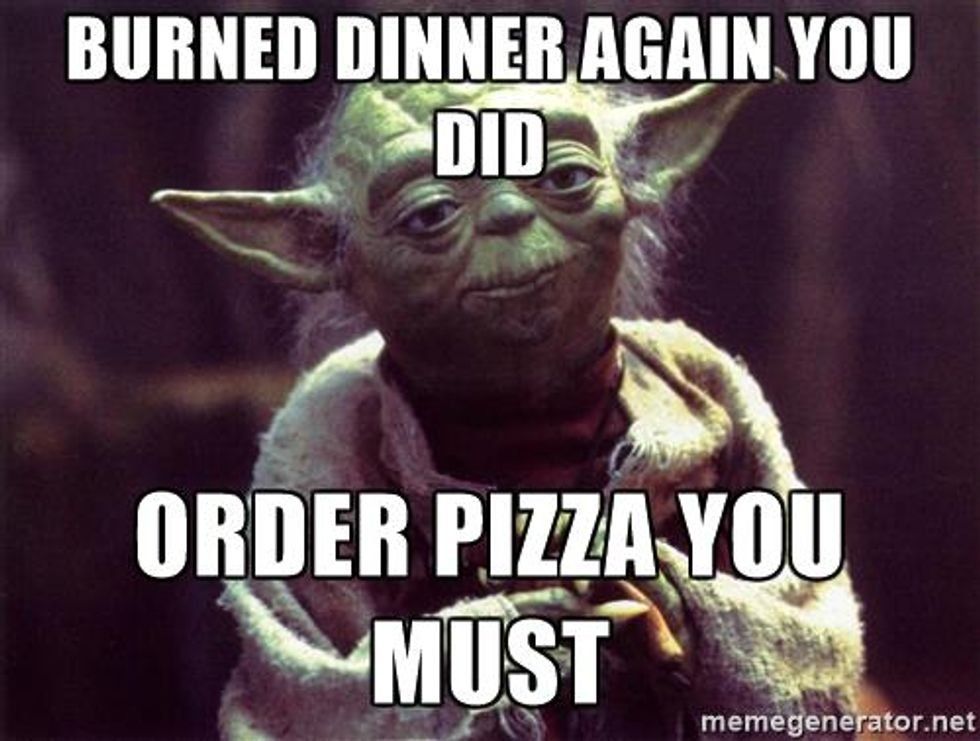Never sit or stand with your back to an entrance/exit and crowd.
When in public you have to find the right mix of alertness, relaxation, and paranoia. I would say it is a pretty fair statement to make that most violent crimes occur out in public, and not in the confides of your own home. It shocks me to see people so relaxed in public, people don’t seem to care about their own personal safety. When in public you are in a transitional space, which means people come and go. Most of you won’t realize and do not know what their intentions are. Set yourself up for success and when in public seat yourself facing the entrance, watch the people who enter, and use your common sense for identifying possible threats. When you have your back to the danger you will never see it coming. I understand that in day to day life it can be hard to always watch the entrance, there might be multiple, but try to be situationally aware. If you are sitting with someone you trust, have them be aware of your six, they have now become your eyes.
Put your phone down.
This one carries on from the last point. It is almost impossible to stare at your phone and watch what is happening around you. When in public you need to be situationally aware of what is, can, and will happen around you. This is not strictly limited to criminals attacking you personally, but maybe you walk into an active situation, because you were unaware of your surroundings. Put the phone down every once and a while, you will be surprised at how much more you notice.
Always see and control the hands.
In law enforcement everyone you talk to is considered a possible threat. In the civilian life we tend to be more open to talking to strangers, we have nothing to be afraid of right? Wrong. When you encounter a person no matter if they are a stranger or a friend, you want to see what their hands are doing. Hands are great indicators to the future, people who plan on becoming aggressive will usually clench their fist without even realizing. Use these cues to ensure your safety, when you see someone become aggressive use verbal judo to deescalate the situation, or remove yourself from the threat. Another reason you want to watch/see people’s hands is because most violent attacks are launched from surprise, usually escalating from a verbal encounter. If people have their hands behind their back or in their pockets you have to understand that they are probably hiding something, or at least have the ability to be hiding something. By controlling their hands, you eliminate the threat of them using a weapon against you.
Never stand directly in front of a door you are unfamiliar with.
When I was an intern with a local police department I rode along with a rookie officer. During the ride along he told me about why officers do not stand directly in front of doors when they knock and announce. In the law enforcement world, you do not want to stand in front of a door because you do not know what is on the other side; it could be someone with a gun ready to shoot though it when they realize you are the police. The civilian application to this practice is that when you are knocking on a stranger’s door you do not know who or what is on the other side. If that person has malicious intents they are going to try and attack you through the door, or possibly open the door and attempt to grab/attack you. This concept is a cool one I wanted to include, but its civilian applications are definitely limited.
Know who you are with/talking to.
When you are out in public and talking to someone, you always want to ask them their name multiple times over the course of the conversation. This allows you to remember it better and lets you see if their name changes. Most liars are quick to come up with fake names, but if you get a good conversation going they can easily slip up and forget. If someone is lying to you about their name it’s a good sign they have something to hide. If someone is not interested in giving you their name they are probably not a friend but a threat. If they do give you their name, you now have a name to put to a description if you are to get attacked. Names are key to identifying preattack cues, ask and watch what happens.
Always look for weapons, assume they are there until you can prove not.
This one is simple, look at waistbands both front and back, ankles, and pockets. It is pretty hard to conceal a weapon these days without printing (showing through the clothing). The thing is that people aren’t looking so they never find, if you start to look for weapons you sure will find them. Just because you might believe you see a weapon does not mean that the person is a threat, it just means you now have to watch them and make sure they are not going to become one. Most people that conceal carry are legally armed, so they are nothing to worry about. It is the criminals with guns you need to be aware of.
When in a group talking to a stranger, stand at angles.
When you and friend/friends are talking to a person or group of people you don’t want to stand close together. You want to make sure you have about a 20-40-degree angle between you and the next person. This means that you spread out and don’t cluster up. If that secondary group of people becomes a threat it does not take a lot to take down multiple people at once. By spreading out you are creating space, and space can save your life in a fight. In police work this is practice also so that you avoid blue on blue cross fire.
Eye contact is tunnel vision, don’t miss what else is around you.
This one and not being on your phone has the same purpose. It is to maintain situational awareness at all times. Maintaining eye contact is the polite thing to do in our society, but you have to find a mix of eye contact and scanning. Look around you to identify transitioning threats, and then go back to eye contact to show interest in a conversation. Rely on your peripheral vision as well to see people coming from the sides, watch them to make sure they continue walking, or have a real purpose for being there.
Complacency is deadly.
We all have daily routines that we follow each day. Break these routines and break the complacency, by giving yourself a predictable pattern you are allowing someone to track you and target you. Just because you think you are safe and that nothing will ever happen to you, doesn’t mean you shouldn’t prepare for the worst. Preparation is key to success.
Know where you are at all times, street names and house numbers.
Some of you might ask why this is so important. Well think about this, you are driving down a narrow back road in your town, you lose control and crash. You don’t know where you are, you are bleeding heavily, you call 911 and you now have to wait and see IF they can accurately track you phone and route medics. This process can take time, and when you are injured time can take your life. If you are aware of your surroundings, and can accurately pinpoint your location, dispatch can get help to you much quicker. A tip for finding your location if you don’t know it and you’re in a pinch, is ask Siri on your iPhone. Usually the iPhone will give you a very accurate address. Ask Siri for your current location.



 Photo by
Photo by 














